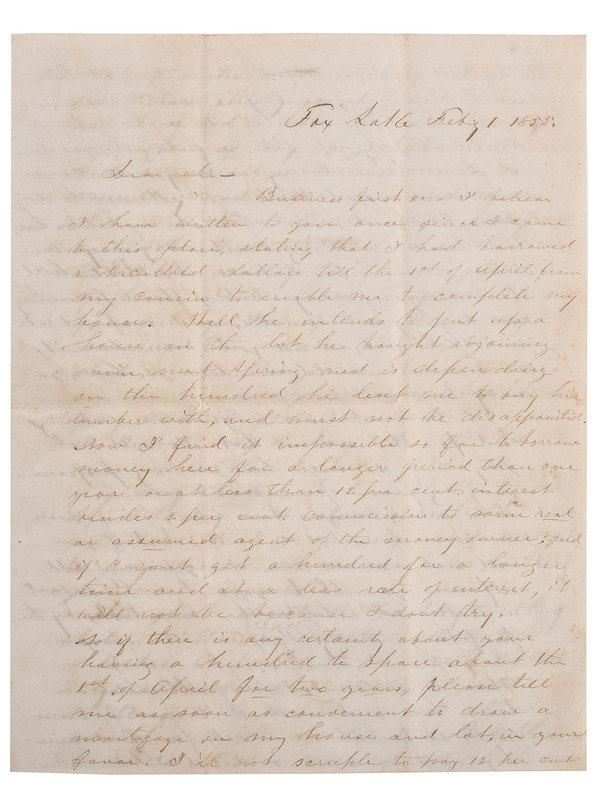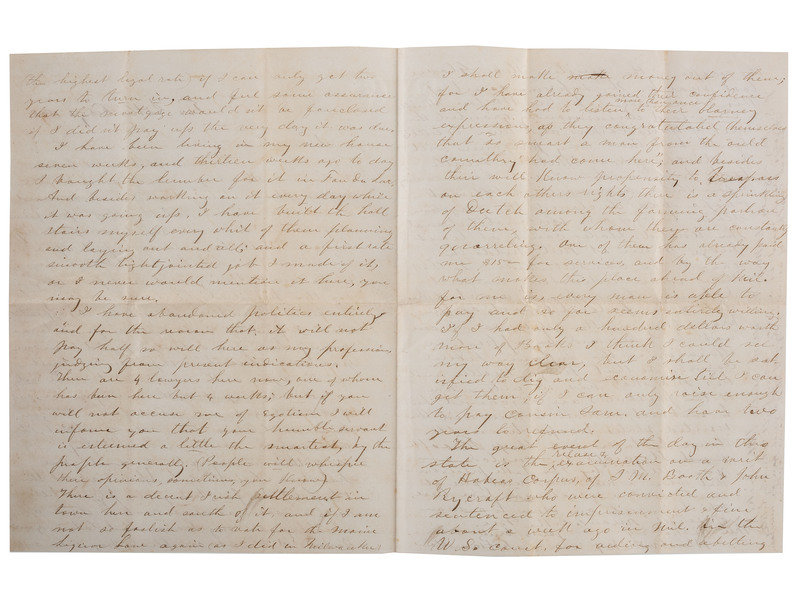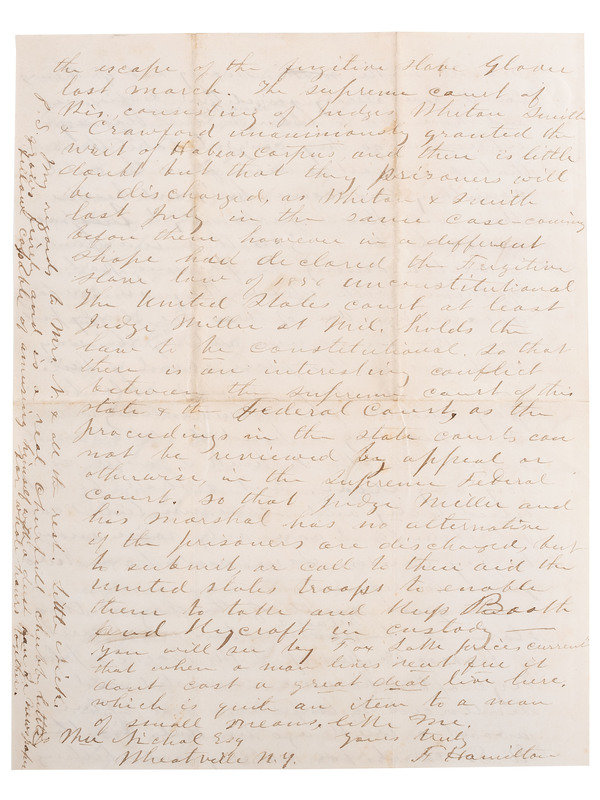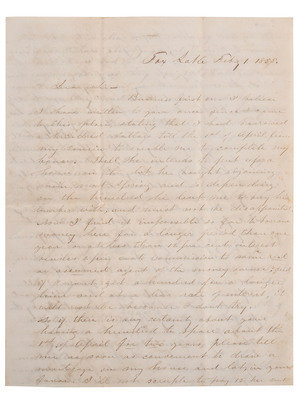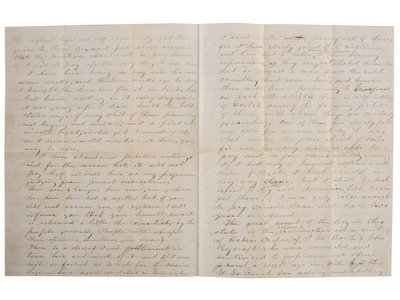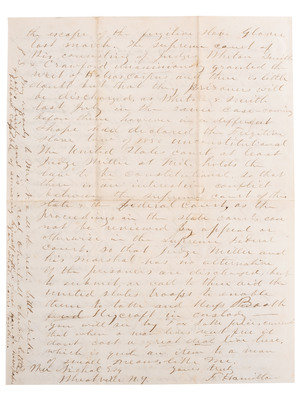Lot 38
[SLAVERY & ABOLITION]. Letter from attorney with description of events surrounding the Booth and Rycraft cases, a significant legal battle related to the enforcement of the Fugitive Slave Law in Wisconsin. Fox Lake [Wisconsin], 1 February 1855.
Sale 994 - African Americana
Feb 23, 2022
11:00AM ET
Live / Cincinnati
Own a similar item?
Estimate
$200 -
400
Price Realized
$2,500
Sold prices are inclusive of Buyer’s Premium
Lot Description
[SLAVERY & ABOLITION]. Letter from attorney with description of events surrounding the Booth and Rycraft cases, a significant legal battle related to the enforcement of the Fugitive Slave Law in Wisconsin. Fox Lake [Wisconsin], 1 February 1855.
4pp, 7 3/4 x 10 in. (light toning, creases at folds).
Writing to a friend in Wheatville, NY, Frances Hamilton (ca 1822-1904) first describes his finances, his new house in Fox Lake, and his decision to abandon politics and focus on his law career. An interesting description of the town's Irish settlers follows. From there Hamilton moves to a discussion of "the great event of the day" in the state, the "release & examination on a writ of Habeas Corpus, of S.M. Booth & John Rycraft who were convicted and sentenced to imprisonment & fine about a week ago in Mil.[waukee] in the W.S. [Wisconsin Supreme] Court for aiding and abetting the escape of the fugitive slave [Joshua] Glover last March." Hamilton continues providing his assessment of the case and notes that "there is an interesting conflict between the supreme court of this state and the Federal Court, so that [Federal District] Judge Miller and his Marshal [US Marshal Stephen V.R. Ableman] has no alternative if the prisoners are discharged but to submit or call to their aid the United States troops to enable them to take and keep Booth and Rycraft in custody."
Wisconsin newspaper editor Sherman Booth was an abolitionist who had been sentenced to jail by a federal court for assisting a formerly enslaved freedom seeker in violation of the 1850 Fugitive Slave Act. The case described here ultimately made its way to the United States Supreme Court as Ableman v. Booth (1859) in which the court led by Chief Justice Roger B. Taney upheld the constitutionality of the Fugitive Slave Act.
Condition Report
Contact Information
Auction Specialist
